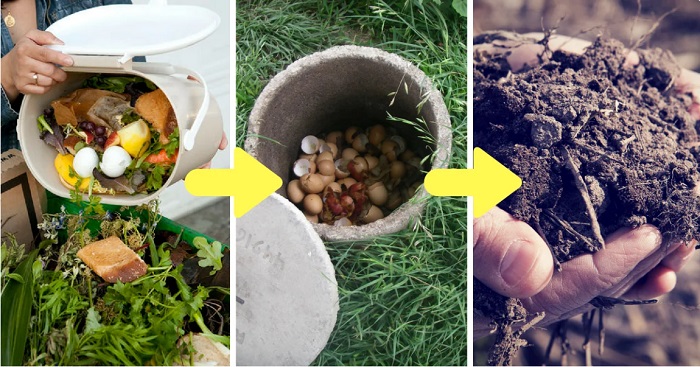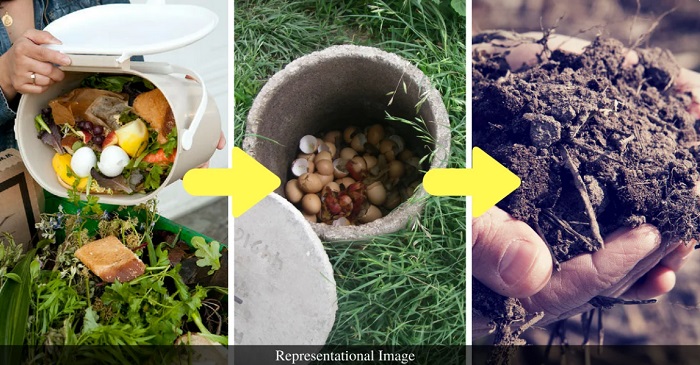TS Mahadevaswamy, 64, is a resident of Vinobanagar of Shivamogga, Karnataka. A retired paper mill manager, Mahadevaswamy has the expertise in wet-waste management and believes that for the environment to be clean, one must efficiently manage wet-waste.

Retired Mill Manager Uses PVC Pipe in Unique Way To Turn Kitchen Waste Into Manure!
2023-12-01 09:00

Source: Wikimedia/USDA
The method uses a six-foot length of PVC pipe which is six inches wide, inserted 1.5 feet into the earth and in time can turn wet waste into manure. But how?
He developed a contraption that can turn kitchen waste into manure inside a PVC pipe! For this innovation, he won the Swachh Survekshan 2018 award in the citizen participation category!
Talking to The Times of India, Mahadevaswamy says, “People are always disgusted with waste, but don’t want to take care of it.” So putting an end to this habit, he has come up with a way that can turn wet kitchen waste into manure with very minimal effort.
The PVC method uses just four things, he says, “All that people need to implement this process is a length of PVC pipe, cow dung, jaggery and water.”

The method uses a six-foot length of PVC pipe which is six inches wide, inserted 1.5 feet into the earth. Mahadevaswamy says, to activate the bacterial property of the soil, one kilogram of cow dung is diluted with 10-15 litres of water. To this, a kilogram of jaggery is mixed together and poured into the pipe.
From the next day, kitchen waste or wet-waste can be dumped into the pipe daily, with a mug of water being added every week.
Know that wet-waste means organic waste, anything that was living at one point in time. It can easily be composted into manure.
Mahadevaswamy tells us what to do after this. He states, “Every two to three months, poke a stick into the pipe, if it comes out wet, the process is active. If not, pour the mixture of cow dung, water and jaggery once again.” Though it is simple, he adds that it is, “however, a time-consuming process as it takes eight months to a year to generate manure.”
To show that the generated manure is usable, Mahadevaswamy had the compost tested. He adds “I got the manure tested at a lab and the results showed that it is rich in calcium, phosphorous and other nutrients. People’s waste should be dealt with in their homes.”
Armed with the success of his method, Mahadevaswamy set up the PVC compost system in the homes of the Deputy Commissioner, the CEO of the Zilla Panchayat and the Corporation Commissioner.
A proud Swachch Bharat Mission Coordinator for the city, Mahadevaswamy is an inspiration to us. With methods as simple as these, combined with other methods of recycling, homes can cut down their waste output considerably, easing the environment of pollutants.
(Edited by Shruti Singhal)








